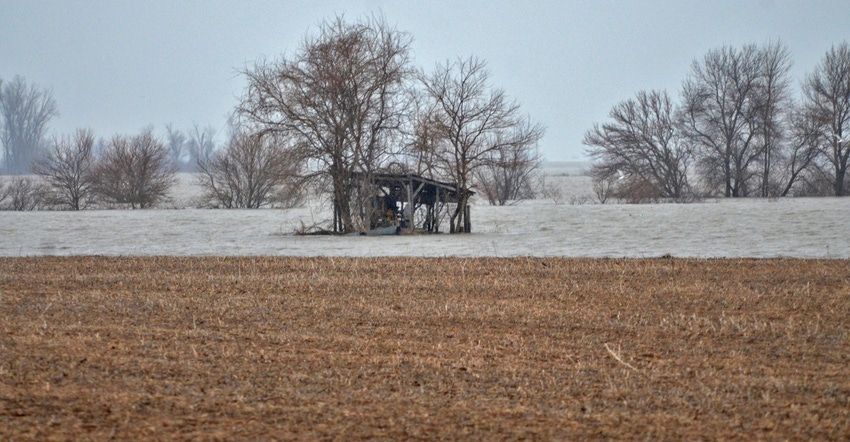March 29, 2019

Pictures of towns flooded, grain bins busted open, cows stuck in snow and a National Guard Chinook dropping big round bales to cattle below cause me to exhale long and hard, saddened by the images.
In an instant, my pulse starts to quicken as my mind shifts. I need to go, document and share these stories. One minute later, I find myself in self-degradation mode. How crass of me to take delight in someone else’s disaster.
Those involved in news reporting often are called to cover natural disasters. Many race in, searching for one photo, one sound bite, one story that will make them and their publication soar to the top of Google searches.
I don’t blame them. Being drawn to calamity is an instinct many journalists, I believe, are born with. But in searching for the story, are we stressing the survivors?
Honestly, I struggle with this very concept with every flood, tornado or fire that hits rural America. Why? My perspective.
I am an agricultural journalist. While I still search, investigate and report the facts of a situation, there is a distinct difference between me and my urban counterparts — those affected by the disaster are my people.
It doesn’t matter if they are flood victims in my home state of Missouri, or our neighbors to the north in Nebraska and Iowa, they are farm and ranch families. And farmers care for farmers.
As a livestock producer, I catch myself questioning why reporters pester people trying to come to grips with the totality of their loss. People who are in a mad dash to find ways to feed their animals before they feed themselves. They are tired. They are worn. They need a break.
But I can’t just blame reporters. As a news consuming public, we share in that blame. We all want to see and hear about disasters, forcing someone to cover the story.
It is a difficult situation all around, but even more so when you are involved in the industry. Those affected are truly part of my extended agriculture family. My ag journalist instinct is to help, not hinder. It was what I was taught at a young age on the farm. It did not disappear from my moral code when I obtained a journalism degree.
As journalists, rather than shoving a video camera or microphone in a survivor’s face in hour one of a disaster, pick up a shovel and fill a sandbag. Instead of peppering survivors with a barrage of questions, donate 24-packs of water bottles.
When the chaos dies down, then will I reach out to our farming family to share their stories and report on solutions to help them survive this disaster and remain on the land and in an industry we all love. Ultimately, it is not right to gain off others’ pain.
You May Also Like




